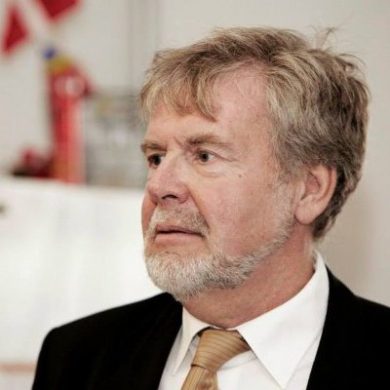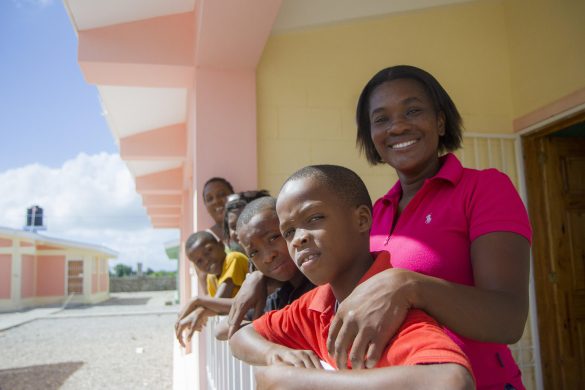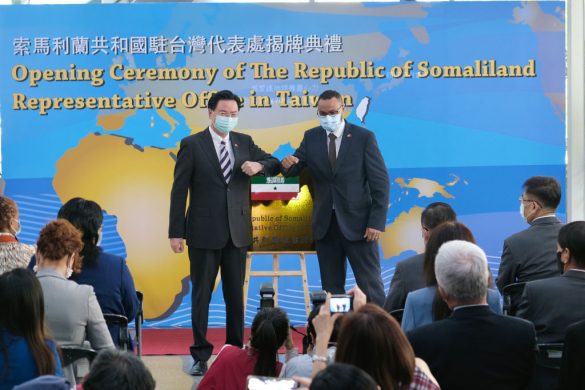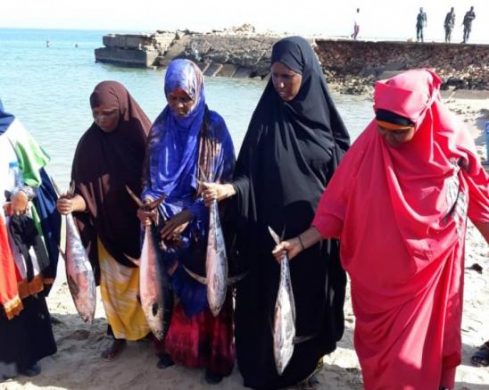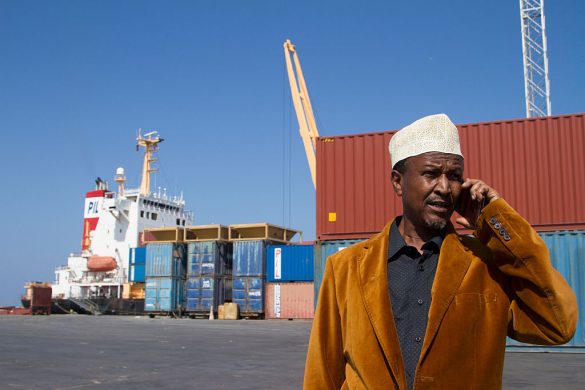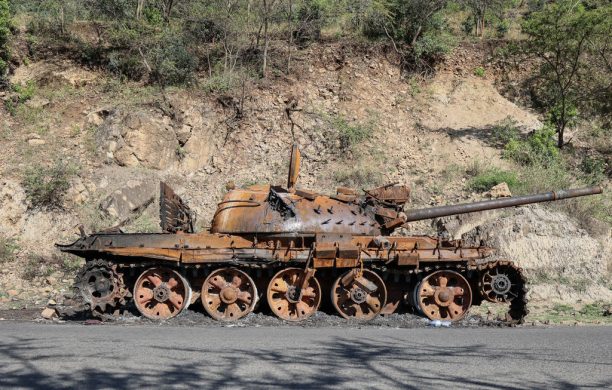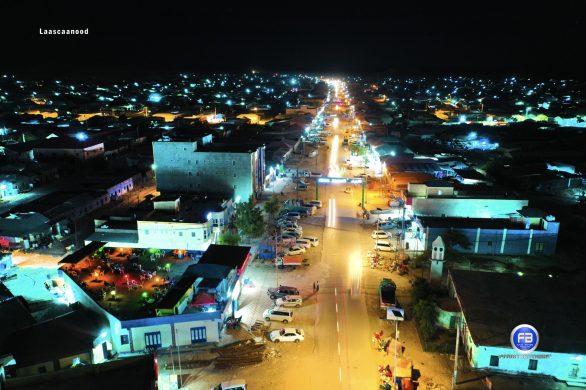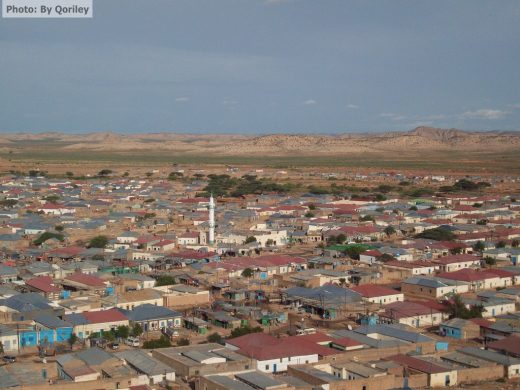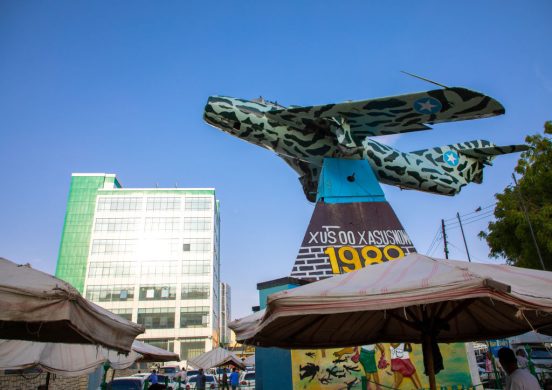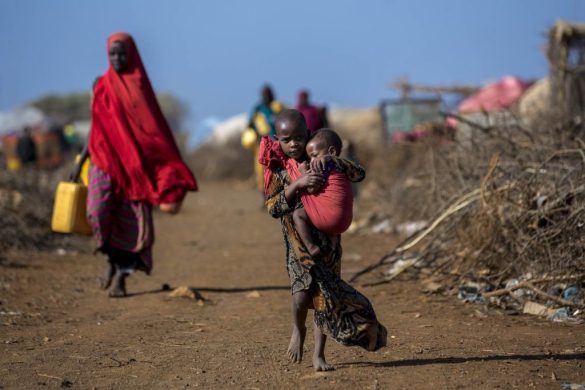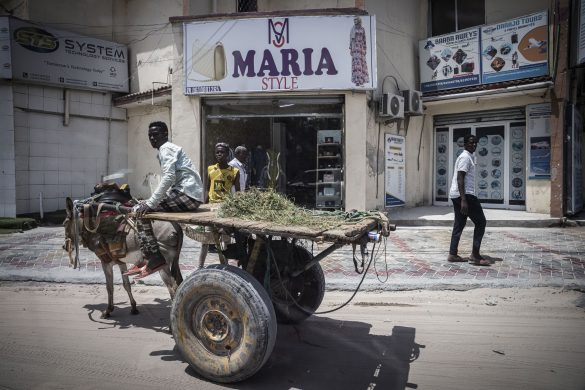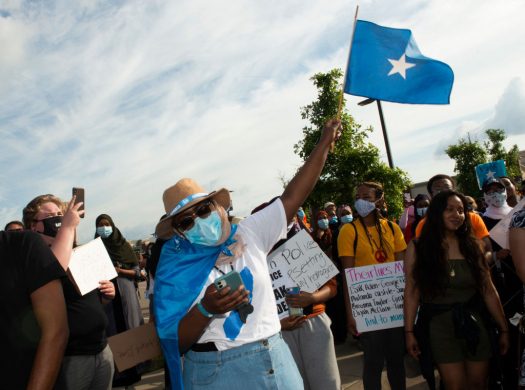Fødselarens liv har været præget af pædagogikken, siden han blev færdig som lærer fra statsseminariet på Emdrupborg i 1968. Men det har også været præget af Afrika.
Blandt så meget andet indenfor pædagogikken var han rektor for Højvangsseminariet i Glostrup i 20 år.
Allerede dengang fik han imidlertid øje for udviklingen i Afrika og krydrede rektorgerningen med at være seniorrådgiver i Ghana i ti år for FNs Børnefond (UNICEF), pædagogernes fagforening BUPL og Ghana National Association of Teachers.
Efter pensioneringen i 2012 sprang han (fra januar 2013) til som sekretariatsleder i den danske u-landsforening Fair Fishing.
Den har fokus på fiskeriprojekter i det fattige Somaliland på Afrikas Horn og virker alene i kraft af donationer fra store danske og internationale virksomheder og fonde.
Her har Carl-Jørgen Bindslev doneret sine organisatoriske evner og arbejdsenergi gratis for at stimulere og opretholde den udvikling, som foreningen satte igang – i øvrigt med gamle “Africa Hands” som u-landsmæcenen Jørgen Harboe og journalist og forfatter Knud Vilby ombord.
Fiskeristationen i Berbera
Fair Fishing har med støtte fra Mærsk Line bygget en fiskeristation i den store havneby, Berbera, i Somaliland af syv brugte 40-fods Mærsk kølecontainere og to flake-ice-maskiner.
Den åbnede med lokale fiskeri-selskaber og fiskere som partnere. I dag vurderes over 85 procent af fiskerne i Berbera at være medlemmer af producent-organisationen Fair Fishing. Partnerne beskæftiger ca. 400 sæsonarbejdere i et land, hvor arbejde er en mangelvare.
Den almennyttige forening Fair Fishing blev oprettet i slutningen af 2011 og Bindslevs søn, organisationsudvikleren Claus Bindslev, er formand for bestyrelsen.
Samarbejdet omfatter også et rådgivende organ (Advisory Board), som bl.a. tæller hele to ministre i Somaliland
Så den lokale interesse for projektet er stor i landet ved indsejlingen til Rødehavet, hvor man ellers ikke har spist mange fisk, fordi de ikke kunne ises ned – f.eks. til eksport – og næsten ingen lokale forbrugere havde køleskabe.
Nu kan fisken ligge på køl og fiskerne får langt bedre priser for deres fangster.
Værdien af den landede fisk løber op i millioner
Fair Fishing skriver (på engelsk):
In October 2013, Fair Fishing opened the first ever fish processing station in Berbera. It consists of seven merged and refitted reefer containers, an ice machine (with another currently on the way) and an office building.
Fish is hygienically processed and stored in deep freezers or cold storage rooms prior to being transported to the market.
Our daily capacity for ice production and fish processing is 4,5 tonnes. In 2014, 400 tons of fish passed through the station: The estimated worth of this fish on the local market is 1,3 million US dollar (ca. 8,8 mio. kr.).
In January 2015, Fair Fishing opened a Partner Supply Unit (PSU), a shop for partners providing high-quality equipment never before used in the area, at cost prices”.
Mange fremtidsplaner
Fremtidsplanerne er store, hvis ellers man kan skaffe penge – for Danida giver ikke noget:
Vi citerer:
Coming up (pending funding)
To build the capacity of the local producer organisation in order to improve access to markets, jointly manage the local fisheries sector and work towards building the capacity of the national fisheries sector
To improve the skills and build the technical capacity of fishers at sea to strengthen the value chain
To establish a basic demonstration boat maintenance and repair capacity at the FairFishing Station to protect the livelihoods of artisanal fishers
To install a 100KW solar panel mini-grid to bring down the costs of production of energy by 80 per cent in an expanded Fair Fishing station, hoped to be complete in 2017:
Se mere om projektet på
http://u-landsnyt.dk/nyhed/21-12-13/dansk-st-ttet-alternativ-til-pirateri-sv-rdfisk-fr og
http://u-landsnyt.dk/nyhed/05-05-14/fisk-i-stedet-pirateri og
http://u-landsnyt.dk/Julekalender2014/4
En aktiv 70-årig
For den initiativrige fødselar har projektet i Somaliland været en ret så enestående lejlighed til at berige et i forvejen aktivt liv som pensionsist.
Arbejdspladsen er nu Fair Fishings kontor på Bygmestervej i Københavns nordvestkvarter – dertil kommer rejser til det fjerne land.
Carl-Jørgen Bindslev bor med hustruen Karen i en velholdt landejendom på 275 kvadratmeter ved Annisse i det smukke landskab nordøst for Arre sø.
Rigt på fugleliv for den ornitologisk intresserede mand, som cykler meget og længe – og ifølge sin Facebook-profil gerne lytter tll sin ungdoms rullesten. Ellers er parret travlt beskæftiget af de ni børnebørn, som deres tre voksne børn har.
Lige til sidst….
Lad os til sidst kigge lidt i Fair Fishings nyhedsbrev fra oktober 2015. Her beskrives bl.a., hvordan man gerne vil ekspandere projektet til gavn for flere fiskere.
Going East: FairFishing in Maydh and Erigavo
In mid-September 2015, the Fair Fishing team travelled to the eastern Somaliland region of Sarnaaq, to the town of Erigavo (on the top of Somaliland's highest mountain) and the fishery village Maydh.
The trip took 20 hours, including a 53 kilometre and 6 hour trip down a stone paved mountain-road just wide enough for our Toyota Land Cruiser. Out of the window, we looked straight down into a several hundred metre deep valley.
We made the trip to the East to visit the Maydh fishermen, and to assess what can be done to develop the Maydh fishery value chain should future funding allow it.
The recent war in Yemen has isolated the Maydh fishermen. Before the war, they sold what they caught to Yemen fishmongers.
They did not make a fortune doing so, but it was a living. Their Yemen connections also provided them with ice and petrol for their 7,5 m fishing vessels.
Now, they are isolated because the trip across to Yemen was their market route. Yemen no longer buys fish and the mountain route we undertook cannot be used to service an inland Somaliland market.
Hvad skal der gøres?
First, cold storage needs to be constructed to gather the fishermen's catches in one place. Then, a sea transport route to Berbera needs to take shape.
And the fishermen want this: These days they are forced to offset their catches to anyone willing to buy from them, leaving them with no influence on pricing.
They must take whatever it is the buyer is offering or or dump their fish back in the sea. Which is unthinkable, as the species and volumes of fish outside Maydh are a fisherman's dream. The water is enriched with minerals from the many mountains surrounding Maydh, bursting with nutrition.
This is also one of the reasons why the coral reefs are so much bigger than in many other locations along the Gulf of Aden coast.
So the situation in Maydh is clear: The local fishermen must focus their business on Berbera to access better prices and a market for their fish.
Transporting fish from Maydh to Berbera, with the slower vessels, takes 20 hours. And even though the mountain route is a breathtakingly scenic one, it is no alternative if the goal is to establish steady, high quality and dependable fish supply from Maydh.
Going west: Fair Fishing goes to Lughaya
On September 30, Fair Fishing left for a field trip to the West, travelling to Lughaya to figure out what already exists in terms of fishery infrastructure, and what needs to be done to get a solid and sustainable fishery value chain in place.
How can FairFishing boost the local interest in and consumption of fish?
Somaliland fishermen are catching more and more fish, but the preferred local diet is camel and other livestock. How can fairFishing boost the local interest in and consumption of fish?
This is the task 50 seventh grade school children from Tagensbo and Nørrebro Park School in Copenhagen, Denmark will develop solutions for until April 2016, during a programme in social innovation lead by Copenhagen Innovation and Entrepreneurship Centre.
We got off to a good start, identifying challenges such as habits, fish being seen as smelly (because there used to be no ice to cool it) and the lack of fridges in the general population.
Fair Fishing looks forward to seeing the pupils' ideas and solutions develop, and putting them to use locally in Somaliland.
Mere om Fair Fishing på http://fairfishing.org

